The Silent Suffering of Men: A Tragedy Society Ignores
The recent suicide of a 15-year-old boy has left many in shock and disbelief. Conversations around this tragedy have been filled with expressions of grief, sympathy, and concern. Both men and women have shared their horror at the circumstances surrounding his death, reflecting on the pain he must have endured. We collectively pray for protection against such tragedies and hope that no one has to suffer in silence.
However, this outpouring of empathy brings to light a stark contrast in societal reactions to suffering, especially when it comes to men. Just two months ago, on December 9, a grown man took his own life, leaving behind a detailed 24-page note and an 81-minute video documenting the years of abuse, harassment, and emotional torture inflicted by his wife and her family. His story was not an isolated case. In India alone, more than 80,000 husbands die by suicide each year, many unable to escape the torment they endure behind closed doors.
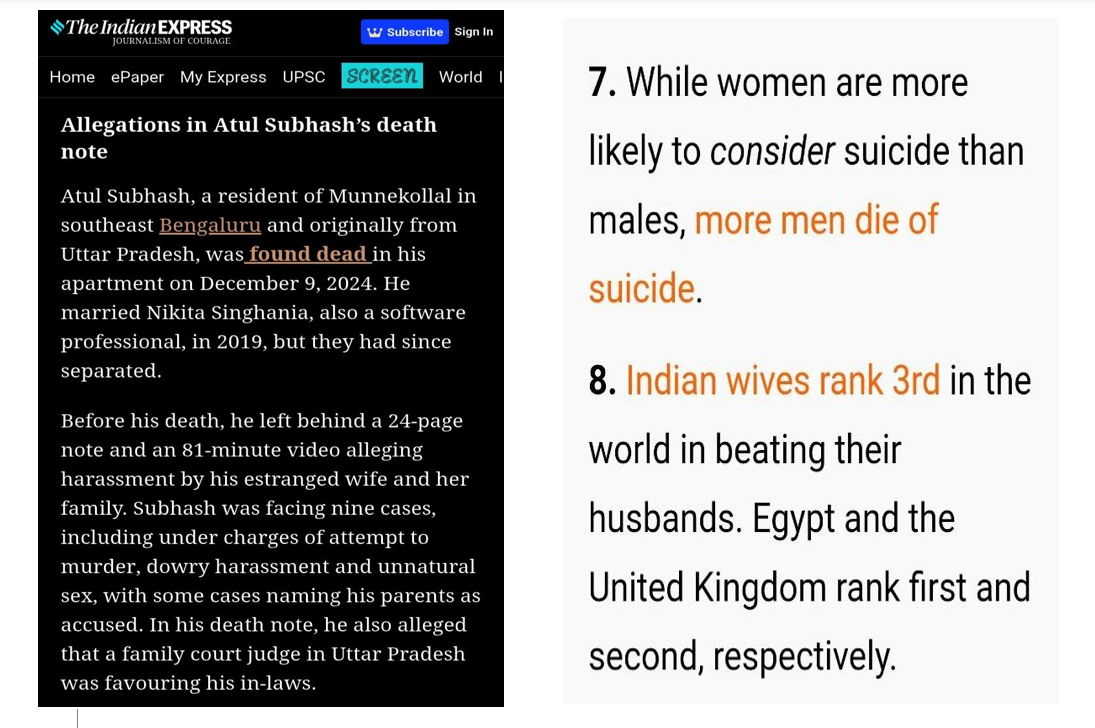
Yet, in stark contrast to the response toward the young boy’s tragedy, there was little to no collective outrage, no widespread conversation, and minimal expressions of sympathy. Most notably, the silence from many—particularly women—was resounding. It raises a deeply uncomfortable but necessary question: Does society only care about male suffering up until a certain age?
When a child suffers, there is immediate empathy. But when that child grows up to be a man, his suffering is often dismissed, ignored, or even ridiculed. The expectation that men must be strong, self-sufficient, and emotionally resilient at all times without nurturant support has created a society where their pain goes unrecognized, and their struggles are seen as insignificant. Moreover, this narrative is often used conveniently as a form of emotionally degrading emasculating abuse from such partners, which nobody looks at.
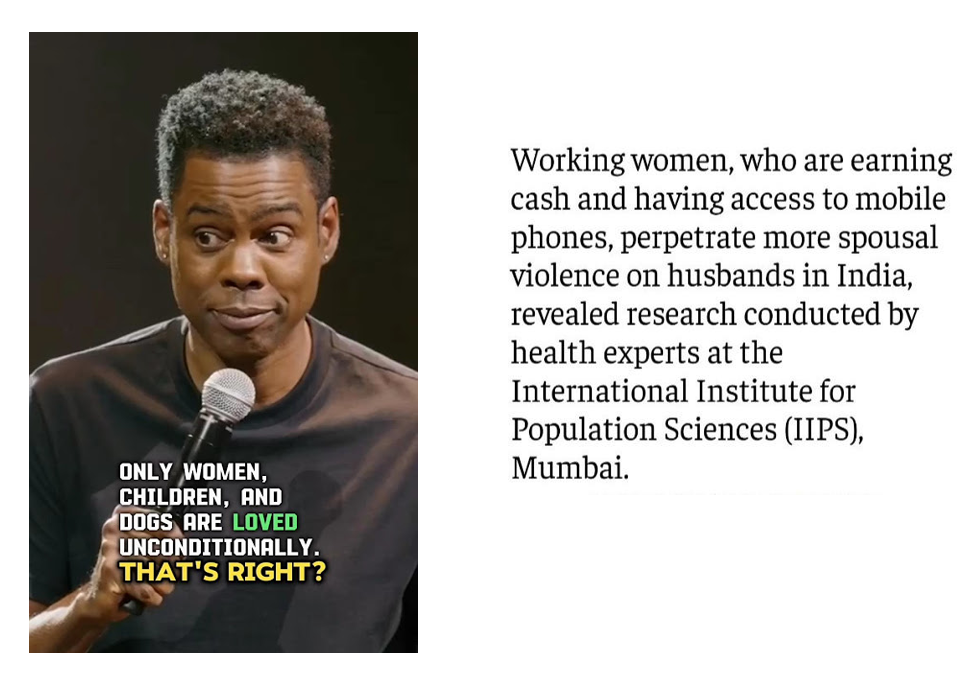
A well-known quote from a comedian comes to mind: "Only children, women, and dogs receive unconditional love. Men are loved only under the condition that they provide something." This no longer sounds like humour anymore; rather it painfully reflects the current reality many men face. As long as a boy remains young and vulnerable, his suffering garners sympathy. But once he grows into a man, the experiences he faces from people around him overshadow any acknowledgment of his pain.
The transition from a boy to a man is marked by a stark shift in societal perception. A child facing hardship is seen as tragic; a man facing hardship is often ignored or, worse, ridiculed. He is expected to earn, provide, and endure—without speaking about his struggles. If he speaks out about the emotional and mental abuse he faces, he is labeled weak, toxic, or narcissistic. If he seeks understanding from his partner, he risks being gaslighted and dismissed. Worse, he is vulnerable to false accusations that can shatter his life beyond repair. The weight of these realities can be unbearable, and for many, suicide becomes the only perceived escape.
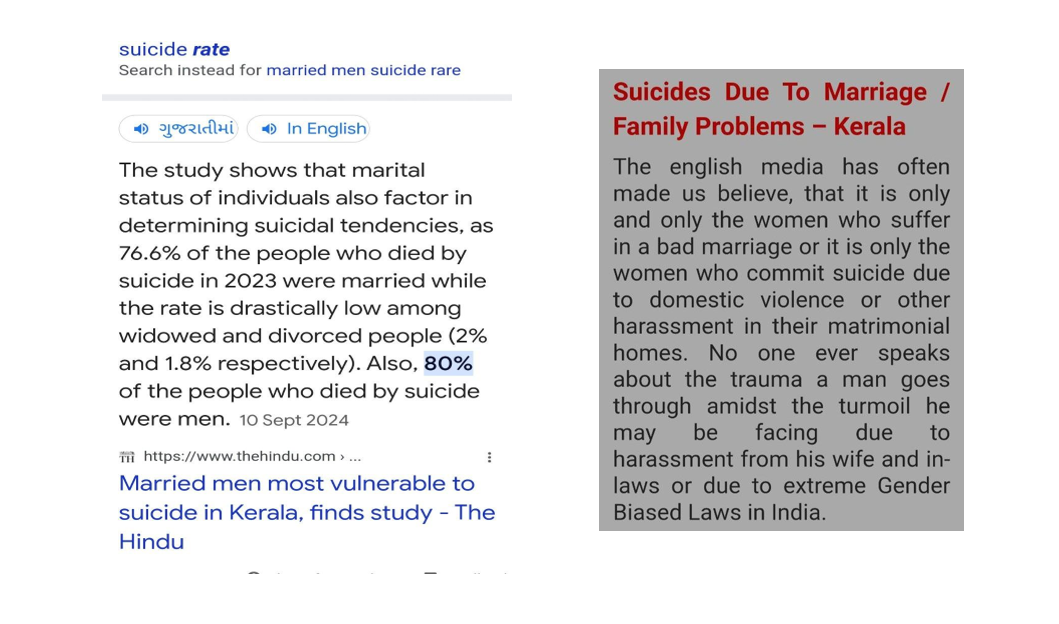
My own experiences with sharing such incidents or speaking about these issues with people from mental health background itself led to backlashes, emotionally targeted labeling, and biased reactions. Many who champion mental health advocacy were conveniently silent when such issues affecting men are reported or discussed openly.
The tragic reality of male suicides, particularly those linked to abusive relationships, false accusations, or societal pressures, is deeply concerning. The numbers in India alone—those that get reported—are staggering. Yet, conversations about domestic abuse often exclude men, despite the fact that men are victims too, often overlooked and unsupported.
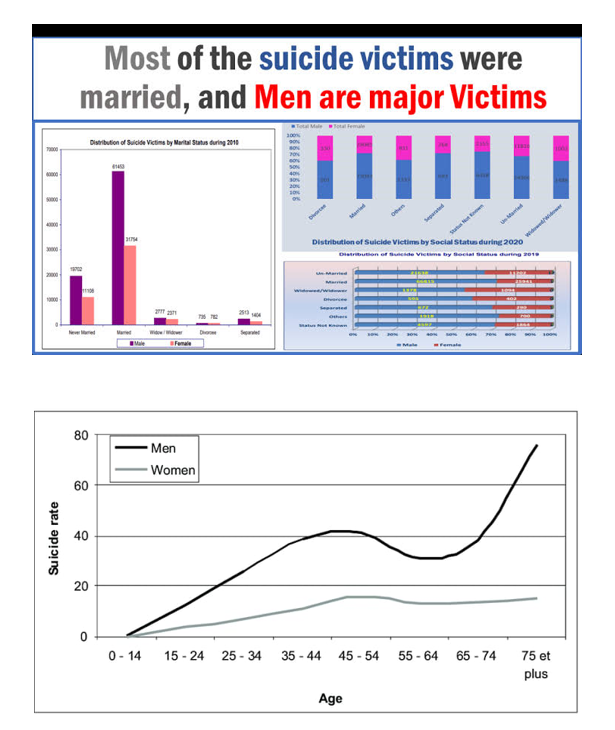
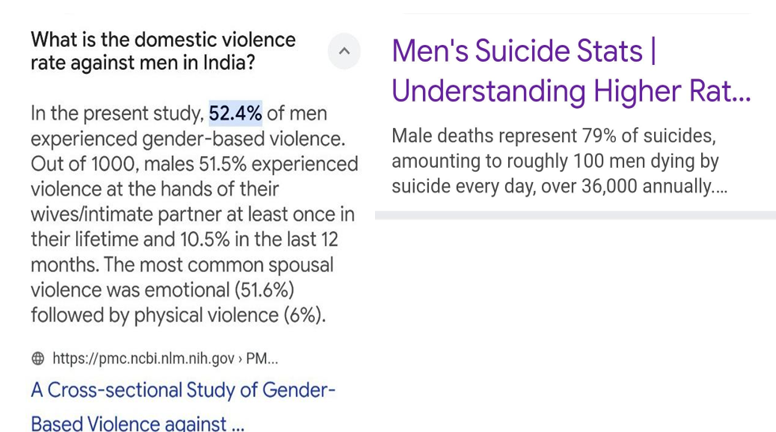
As a therapist specializing in trauma-affected individuals, and as someone who has worked extensively with family cases, I have witnessed firsthand the silent suffering of men trapped in emotionally abusive marriages. Many endure verbal assaults, emotional denigrating, publicly diminishing humiliations, familial belittling, psychological manipulations, and mental torture, yet they remain bound by duty—to provide for their children, to uphold their responsibilities, maintaining an illusion of strength-while suffering silently. Even in cases where the father fights to be a part of his children’s lives, he is often villainized by a partner who weaponizes false narratives, turning his own children against him.
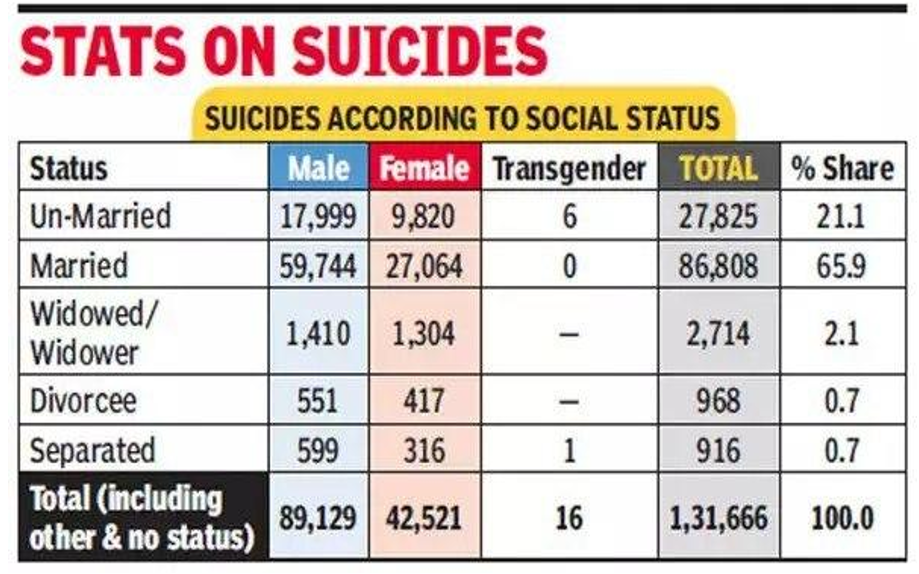
What makes this issue even more alarming is how the very legal system that should offer justice instead contributes to the oppression of men. Biased laws and systemic prejudices make it significantly harder for men to seek help or defend themselves. In many countries, legal frameworks around domestic violence and abuse heavily favor women, often disregarding male victims altogether. False accusations of harassment, domestic abuse, or even sexual assault can ruin a man's life, career, and reputation without substantial evidence. Even when evidence exists to prove a man's innocence, societal bias often dictates that he must have done something to deserve it. Family courts, too, largely favor mothers in custody battles, frequently denying fathers’ access to their children, even when they have been loving and responsible parents. These institutional biases reinforce the notion that men's struggles are secondary and that their suffering is a mere footnote in conversations about gender justice.
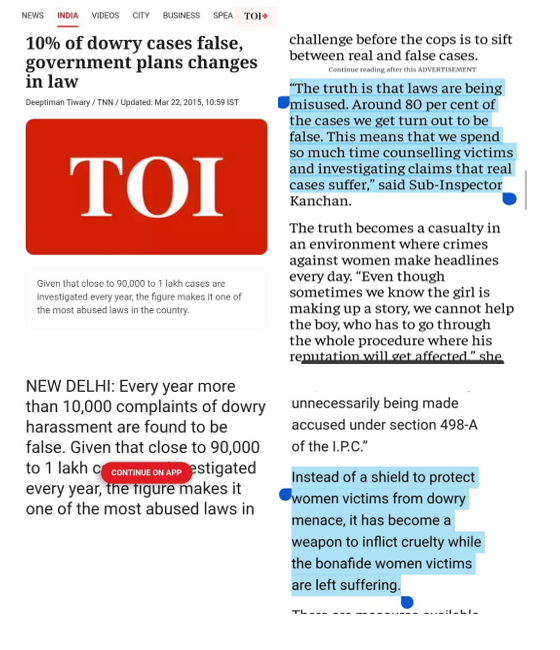
This is not to say that women do not suffer or that their struggles are any less important. Domestic violence, abuse, and emotional suffering affect individuals regardless of gender. However, there is an undeniable imbalance in how society addresses these issues. When women suffer, support networks and societal structures rally to their defense. When men suffer, they are expected to endure in silence.
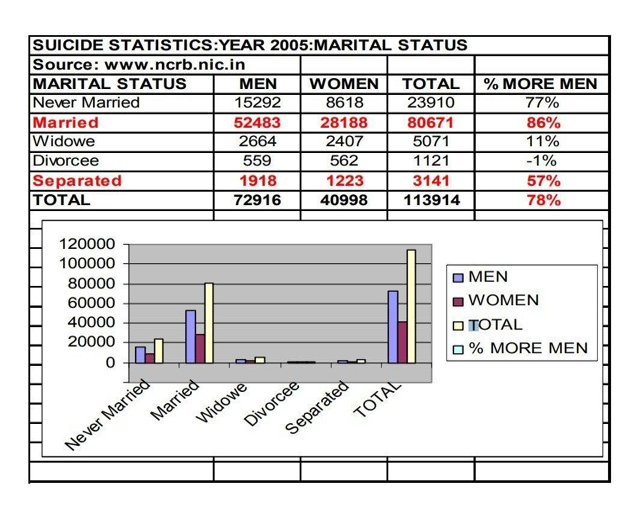
We must ask ourselves: Why is male suffering so easily dismissed? Why does society only acknowledge pain when it fits a specific narrative?
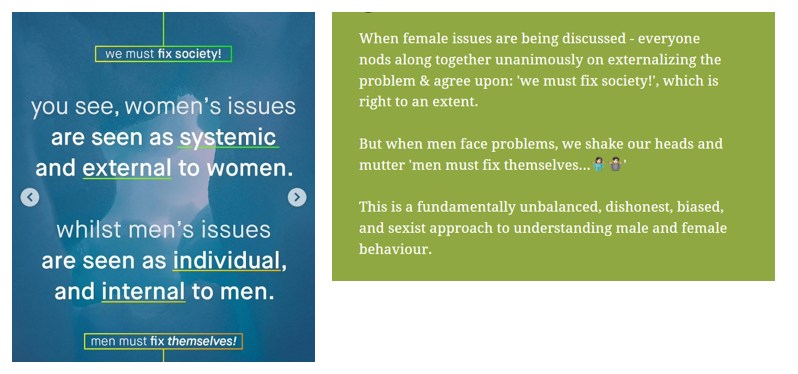
The conversation around mental health and emotional abuse must be inclusive of all victims, regardless of gender. We need to create safe spaces where men feel seen, heard, and supported. We need to dismantle the toxic expectations that equate masculinity with silent endurance. We need to stop treating men's suffering as collateral damage for past societal structures.
These words are a call to action—to create spaces where men can openly talk about their struggles without fear, to acknowledge that abuse is not one-sided, and to break the cycle of silence that leads so many to despair. All suffering deserves recognition and careful understanding if we want to see changes and betterment.
Every life lost to suicide—whether a 15-year-old boy or a 30-year-old man—is a tragedy that deserves equal recognition and reflection. It is time to break the silence. Human lives – including men’s lives matter, their pain is real, and their voices deserve to be heard.
Let this be a call for change.

